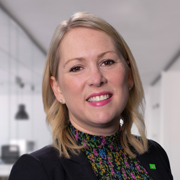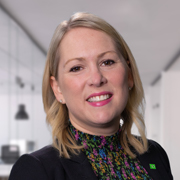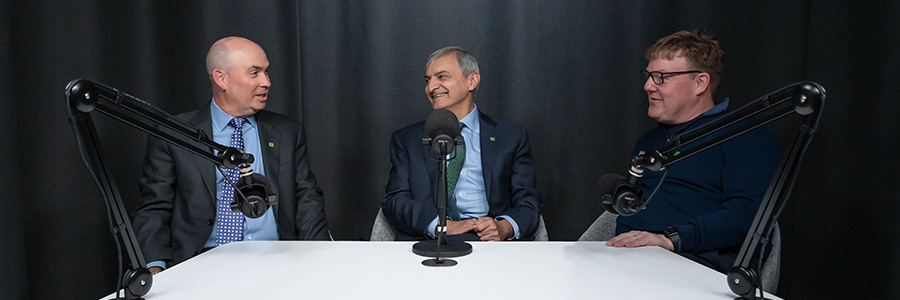Guests: David Santina, Managing Director, Equities Division and Head of U.S. Prime Services, TD Securities and Steve Banquier, Managing Director and Head of Prime Brokerage, TD Securities
Host: Amy Van Arnhem, Managing Director and Head of Canada Senior Relationship Management, TD Securities
How has the alternative asset management space evolved in North America? Steve Banquier and David Santina share their views with host, Amy Van Arnhem as they offer a glimpse into the world of Prime Brokerage, and the value of offering best-in-class services to clients. With interest rates increasingly becoming volatile, how has the market shifted and what's required to become a differentiator?
Listen to additional episodes for more perspectives from a variety of thought leaders on key themes influencing markets, industries and the global economy today.
This podcast was originally recorded on June 8, 2023.
NARRATOR: Welcome to Viewpoint, a TD Securities podcast. Listen in as we draw perspectives from a variety of thought leaders on key themes influencing markets, industries, and the global economy today. We hope you enjoy this episode.
AMY VAN ARNHEM: Hello, and welcome to episode 20 of Viewpoint, a TD Securities podcast. My name is Amy Van Arnhem, and I will be your host for today's episode. I'm joined by two of my colleagues, Steve Banquier, managing director and head of Canadian prime brokerage, and David Santina, managing director and head of US prime services. Steve and David are joining me today to discuss TD Securities prime brokerage business and some of the key trends that are prevalent in the alternative asset management space. Steve, Dave, thank you so much for joining me.
STEVE BANQUIER: Thanks for having us.
DAVID SANTINA: Yes, thank you very much.
AMY VAN ARNHEM: Great. So I have one question first. Why is it prime brokerage in Canada and prime services in the US?
STEVE BANQUIER: I think prime services evolved over the last few years, when you take a more synthetic prime, cash prime, equity swaps, delta one businesses. I think that's evolved from there. But I don't know, maybe David has an opinion on that.
DAVID SANTINA: Yeah. There's no real black and white reason why. It's just different semantics. And that's how we differentiate our business from Canada to US. But there's no real factual reasons behind that.
AMY VAN ARNHEM: OK, great. I get asked that a lot.
DAVID SANTINA: Do you?
AMY VAN ARNHEM: So I just thought I'd clarify it for everybody.
DAVID SANTINA: OK.
AMY VAN ARNHEM: But onto the real questions, first, I think it would be great if you could spend a little bit of time just talking about what a prime brokerage does, or a prime service does, just providing a high-level overview of your business, and what function it provides to the clients. And why the alternative asset management base is such a key client for your business?
STEVE BANQUIER: I'll start off. Basically, we offer a suite of services to alternative investment managers. So I describe it sometimes as a margin account, like you'd have with a retail broker, but on steroids. So we drive revenue from margin loans and from securities lending. But we provide a whole set of suites from custody, clearing, reporting, capital introduction, and a number of other services that complement the ways that we make money.
DAVID SANTINA: On a higher level, I would say really financing solutions for alternative investors, and alternative funds, private money managers. And to Steve's point, there's a whole suite of value-added services that we provide. And when I talk about financing solutions, I mean not just on the long side, but on the short side as well.
To add to Steve's point, the differentiators for us is our service model, capital introduction, and securities lending. I think that's very important to our clients.
STEVE BANQUIER: Yeah. I would say to the core, to a certain extent, prime brokerage has been somewhat commoditized, where these are the rates. And so then how do you differentiate yourself? But it's things like services, these non-tangible things which make a difference.
And I know definitely in Canada, we try to basically out-service our competitors. Because once you bring the client in, as long as you're doing a good job, and you're treating them fairly and pricing them fairly, they'll stick around. So you get this nice annuity business for many years.
AMY VAN ARNHEM: How is the alternative asset management space in particular special for your business? Is it that they are partaking in some of these shorting activities, and some of them take advantage of some of the custodial business?
STEVE BANQUIER: Yeah. When we think of alternatives-- really for me, and I'm sure David's the same way-- it's financing, right, either cash, margin loans, or short selling. And so in Canada, what's evolved is it's very small alternatives market. It's growing. But traditionally, over the past 20 years, it's been private OM funds offering memorandum that could only sell to accredited investors.
And I think what's changed over the last five years or so is that the securities administrator, the regulator, or the OSC, Quebec, whomever, have made changes to the rules around mutual funds to allow mutual funds-- or they call them liquid alts-- allow them to use some leverage and do some shorting. And the benefit of that is from a distribution perspective, you no longer are restricted only selling to accredited investors. You can sell to anyone who has a margin account at a big wealth management firm, providing that their funds are approved by that wealth management firm. So that's been a big evolution within Canada for sure.
DAVID SANTINA: In the US and abroad, the market has been growing. The last couple of years has been a little bit-- there have been some money taken out of the industry as a whole. But now, it's a huge market. And there's thousands of potential private money managers. It depends on how you define it.
AMY VAN ARNHEM: Yes.
DAVID SANTINA: But the category could be quite large. And the opportunity is just phenomenal. So it's very large opportunity, and it's continued to grow. And what we're seeing in that space is that the larger funds are getting larger. And that's been a trend for the last little while, where the really big complexes are really attracting a lot of the money coming into the space.
AMY VAN ARNHEM: And what type of funds are really attracting that money? Is it a specific focus, in terms of end market, so private equity, private debt?
STEVE BANQUIER: I think it's a bit of a cycle. I think traditionally, the last few years, private equity-- there was a fair bit of a shift from traditional hedge funds into private equity. And I think now that's rolling off. We see some private debt. But I think for the core hedge fund business that David and I are involved in, I think that's strong. And I think we're seeing opportunities and some inflows definitely here in Canada, and I suspect in the United States as well, too.
DAVID SANTINA: Absolutely.
STEVE BANQUIER: But it's definitely cyclical.
DAVID SANTINA: And you have to remember. We're focused in diverse strategies. It's not just equity, long, short. There's fixed income and other diversified hedge fund trading strategies that we're focused on.
STEVE BANQUIER: Yeah. I think that's an important point to say, is that you want a diverse book of business. You want start-up, converter. We have nice fixed income business here in Canada. Because as the cycle goes through its phases, certain asset classes aren't going to be in favor, and aren't going to be profitable. And we have to find new asset classes and new clients to deal with to have that nice, smooth distribution of revenue over the foreseeable future.
AMY VAN ARNHEM: So it's just constantly evolving and moving with some of the things that we see in the market, in terms of where clients are finding that alpha generation opportunity. We used to define a hedge fund as a true hedging strategy. And has that changed? Or do you still see that as a core part of the alternative asset space, is really looking at providing these hedge opportunities, where you are circling in on alpha, and really trying to limit the market exposure, or beta at the end?
STEVE BANQUIER: I would say yeah, 100%. Because I think from a risk perspective, we're not in the business of lending money because people want leverage.
AMY VAN ARNHEM: Right.
STEVE BANQUIER: Right, for the sake of having leverage, to boost returns. Because that's a dangerous outcome. Generally, we want to work with firms that are taking in institutional money from institutional investors that have mandates and expect certain things.
So our long short managers, if you go into a deep dive with them, there's a lot of pairs. There's a lot of pods. They have a view on these stocks being overpriced, these stocks being underpriced. And so there is an implied hedge. Our fixed income business is very much hedged. And I think that's what you're paying for. Because traditionally, alternative managers have a two and 20 model. It's not that anymore. But nevertheless, investors are paying a premium for this hedging services and for generating alpha as well, too.
DAVID SANTINA: Yeah, and the alternative space that gives the portfolio managers opportunity to be-- fend against some of the volatility in the marketplace and hedge their exposures. But it really depends on the strategy and what the trading, and goals, and time horizons of the portfolio, and the trading strategies are.
AMY VAN ARNHEM: So with interest rates where they are now, how have you both seen that impact your business? So both within the community that you service, but then also within your businesses specifically? Maybe Steve, I'll start with you in Canada, and move on to the US.
STEVE BANQUIER: Yeah, I think I've seen two things. I think we had some clients that had some opportunistic carry trades, where the cost of borrowing was so cheap that they could buy pretty high quality assets that could have positive carry. I think we saw that with a lot of our fixed income clients. And so that, with the rates being where they are now, that seems to be evaporated.
But on the flip side of that, our fixed income business has probably grown about 65% over the past year. I think a lot of that is with these increases in interest rates, there are certain segments of the market where they think are undervalued. And so we've seen a lot of inflows come into that business. And that's obviously in turn allowed us to grow and be more profitable in that space.
DAVID SANTINA: Yeah, I would agree with that. The one thing I would say, some of our global macro funds did have a little bit of a stumble with some of the treasury moves, and the volatility over the last half a year or so. Things have settled down now in that respect. So that's I would say, to add to Steve's comments.
AMY VAN ARNHEM: And do the higher rates put any strain on how you run your business, or how you think about your business?
STEVE BANQUIER: Definitely we think about it differently. It's top of mind. But for our business, our cost of funds is what we get from our treasury. And we apply a spread to that to our clients. So it does have some nuances. But for the most part, rates went up yesterday in Canada a quarter point. That really doesn't change a whole lot for us. Our clients are just paying more to borrow money from us. But in terms of what they're paying us, that remains static.
DAVID SANTINA: Yeah, I would just add it's really monitoring our liquidity and cost liquidity. It's very important for prime brokers. It's a very balance sheet intense business. So we really have to be on top of all of our costs, our funding costs, and our liquidity costs from a regulatory perspective and a practical funding perspective as well.
AMY VAN ARNHEM: Well, you brought up regulatory. So I'm going to ask. What are the considerations? As financial market participants are always subject to a lot of regulation, is there anything that's top of mind or keeping your industry up at night that's new or changing on the regulatory front?
STEVE BANQUIER: In Canada, the fallout of the financial crisis in 2008 introduced a lot of new rules via the Basel III regime. And so it's really about navigating that and making sure that we're compliant. And then we price things properly. But beyond that, I think the OSC and the regulators in Canada, they've been pretty warm to alternatives. I think there are some reforms, in terms of approvals, that they give to our clients that need to be worked upon. But for the most part, it's pretty good. I know the SEC has got different views on hedge funds these days. And maybe I'll let David speak to that.
DAVID SANTINA: Yeah, it really depends. There's a lot of headlines out there about more capital being allocated to banks as a whole, because of the regional banking issues that have arisen over the last several months in the US. But we have to see the details of that, and how it's going to play out, and what factually will be brought down into the actual practical running of the business. But that's a very important point of how we manage our business and our strategy going forward.
AMY VAN ARNHEM: Yeah, I can imagine. So last question that I would love to dig in a little bit with you both. As you mentioned, providing that top of class service as being hugely important to your business to retain your clients, what recently-- as we know, TD Securities purchased Cowen. I would love to hear a little bit more about how that increases the offering that you have, and also just the opportunity that we have, specifically maybe starting in the US, around our prime services offering. And then maybe closing out, Steve, why we're best in class in Canada, and what are some of those key objectives?
DAVID SANTINA: Yeah. With the acquisition of Cowen, now with TD Cowen as part of the TD group, it's a huge opportunity for us. It really helps us round out our product offering. It really helps us attract clients when we have different services, ancillary services outside of our main prime brokerage business. So there's a lot of execution that happens with our clients. And now that we have more of a franchise in investment banking, research, M&A, and execution, it's really going to help us go to those types of funds, more of the equity-based funds, to help us bring in more clients on the prime brokerage side.
AMY VAN ARNHEM: And we can, of course, continue our journey of growing our fixed income offering as well in the US, which will continue to benefit the business as well.
DAVID SANTINA: Absolutely.
AMY VAN ARNHEM: And then, how about in Canada? What are some of your key service offerings that you really pride yourself on?
STEVE BANQUIER: Yeah, I'll speak to that. But I'll make one comment on Cowen. Because we recently won a piece of business with a Canadian-based hedge fund that really focuses on US mid-cap names. And they wanted a second prime. And they wanted a Canadian. And it came down to-- we were in the mix.
And what really won it for us was this Cowen aspect, and having the ability to execute US, and the ability to offer them research and corporate access. And that was the tipping point. Because pricing and all these other items were the same. So that was nice that we were able to make that impact very quickly.
To your question around what makes us successful and that sort of thing here in Canada, I think a lot of it is longevity. We've been very consistent with the people that we've had. We keep it fairly simple. We're not doing anything international. We're not doing anything overly complex. We do listed equities, options, and fixed income. And we do it well.
And so we're very forthright with our clients. This is what we can do for you, and we can do it well. And the service aspect is big. It sounds corny, but we know there's no voicemail in the group. You hear the phone ring. You pick it up, and you help. You get an email. You make sure you respond by the end of the day, even if it's just saying, I don't have an answer for you. But I'll come back to you.
And it's just the little things that I know-- as a customer of banks, or telephone companies, or whatever-- this is the sort of thing that over time, you build relationships with people. And it just becomes more of a partnership. And it's built around trust.
DAVID SANTINA: Yeah, I really agree with that, totally. And we're looking to build our business in a strategy where we're partnering with institutional-like hedge funds that fit within our business strategy and our risk profile, where we could really differentiate from the other main providers in the US.
AMY VAN ARNHEM: Yeah. Well, I can definitely speak to it being a cornerstone of our business and our relationships with our clients. As a relationship manager myself, I work very closely with the teams. And you're great partners, and you do a lot for our clients. So thank you very much for joining me today.
DAVID SANTINA: Thank you.
STEVE BANQUIER: Thanks, Amy.
[MUSIC PLAYING]
NARRATOR: Thank you for listening to Viewpoint, a TD Securities podcast. If you enjoyed this episode, subscribe to this series on Apple Podcasts or on your favorite podcast platform. For more thought leadership content, visit TDSecurities.com and follow us on LinkedIn for all the latest TD Securities updates. For relevant disclaimers to this podcast, please refer to the Viewpoint episode page on our website.
This podcast should not be copied, distributed, published or reproduced, in whole or in part. The information contained in this recording was obtained from publicly available sources, has not been independently verified by TD Securities, may not be current, and TD Securities has no obligation to provide any updates or changes. All price references and market forecasts are as of the date of recording. The views and opinions expressed in this podcast are not necessarily those of TD Securities and may differ from the views and opinions of other departments or divisions of TD Securities and its affiliates. TD Securities is not providing any financial, economic, legal, accounting, or tax advice or recommendations in this podcast. The information contained in this podcast does not constitute investment advice or an offer to buy or sell securities or any other product and should not be relied upon to evaluate any potential transaction. Neither TD Securities nor any of its affiliates makes any representation or warranty, express or implied, as to the accuracy or completeness of the statements or any information contained in this podcast and any liability therefore (including in respect of direct, indirect or consequential loss or damage) is expressly disclaimed.

David Santina
Managing Director, Equities Division and Head of U.S. Prime Services, TD Securities

David Santina
Managing Director, Equities Division and Head of U.S. Prime Services, TD Securities

David Santina
Managing Director, Equities Division and Head of U.S. Prime Services, TD Securities
David is responsible for leading the U.S. Prime Services effort and plays a key role in the strategy and growth of our U.S. franchise. Prior to joining TD Securities, David worked at Goldman Sachs for 25 years. He initially started in Toronto, for Goldman Sachs Canada where he built and managed their Canadian Money Market and Repo business for 12 years. He then relocated to the U.S. to work in the Global Prime Services group at Goldman Sachs New York for 13 years. For the Prime Services group at Goldman Sachs, David managed the U.S. securities lending business, as well as focusing on funding and collateral management. David joined TD Securities in 2015 as Managing Director in the Equities Division.

Steve Banquier
Managing Director and Head of Prime Brokerage, TD Securities

Steve Banquier
Managing Director and Head of Prime Brokerage, TD Securities

Steve Banquier
Managing Director and Head of Prime Brokerage, TD Securities
Steve is responsible for the oversight, relationship management, business and product development, and governance of a team of traders, relationship managers and business development professionals. Prior to joining TD Securities in 2011, Steve's most recent role was Executive Director, Prime Brokerage with CIBC World Markets, and with Deutsche Bank, where he gained significant global experience in progressively senior roles based in London, New York and Hong Kong.

Amy Van Arnhem
Managing Director and Head of Canada Senior Relationship Management, TD Securities

Amy Van Arnhem
Managing Director and Head of Canada Senior Relationship Management, TD Securities

Amy Van Arnhem
Managing Director and Head of Canada Senior Relationship Management, TD Securities
Amy is responsible for providing holistic cross product global coverage to senior executives for Canadian institutional clients. In her role she manages stakeholder relationships by promoting a collaborative and integrated approach across the firm. Joining our firm in 2001, Amy began her career at TD in the retail sector. In 2007, she joined the Sales and Trading rotational program at TD Securities where she gained exposure in Asset Securitization, Proprietary Equity, and Institutional Equities. In 2008, she joined the Institutional Equity Sales desk team where she covered Canadian equity clients.







